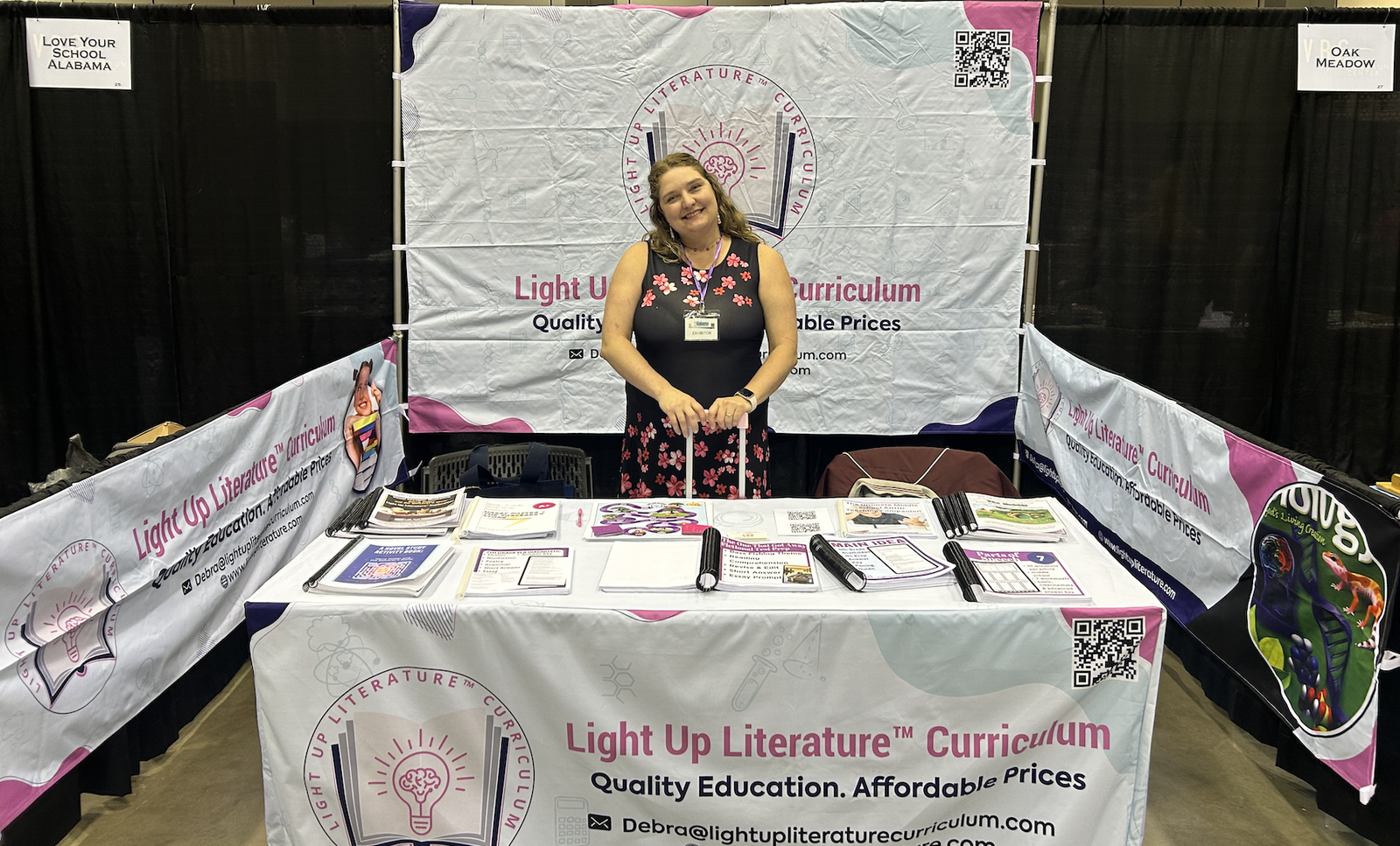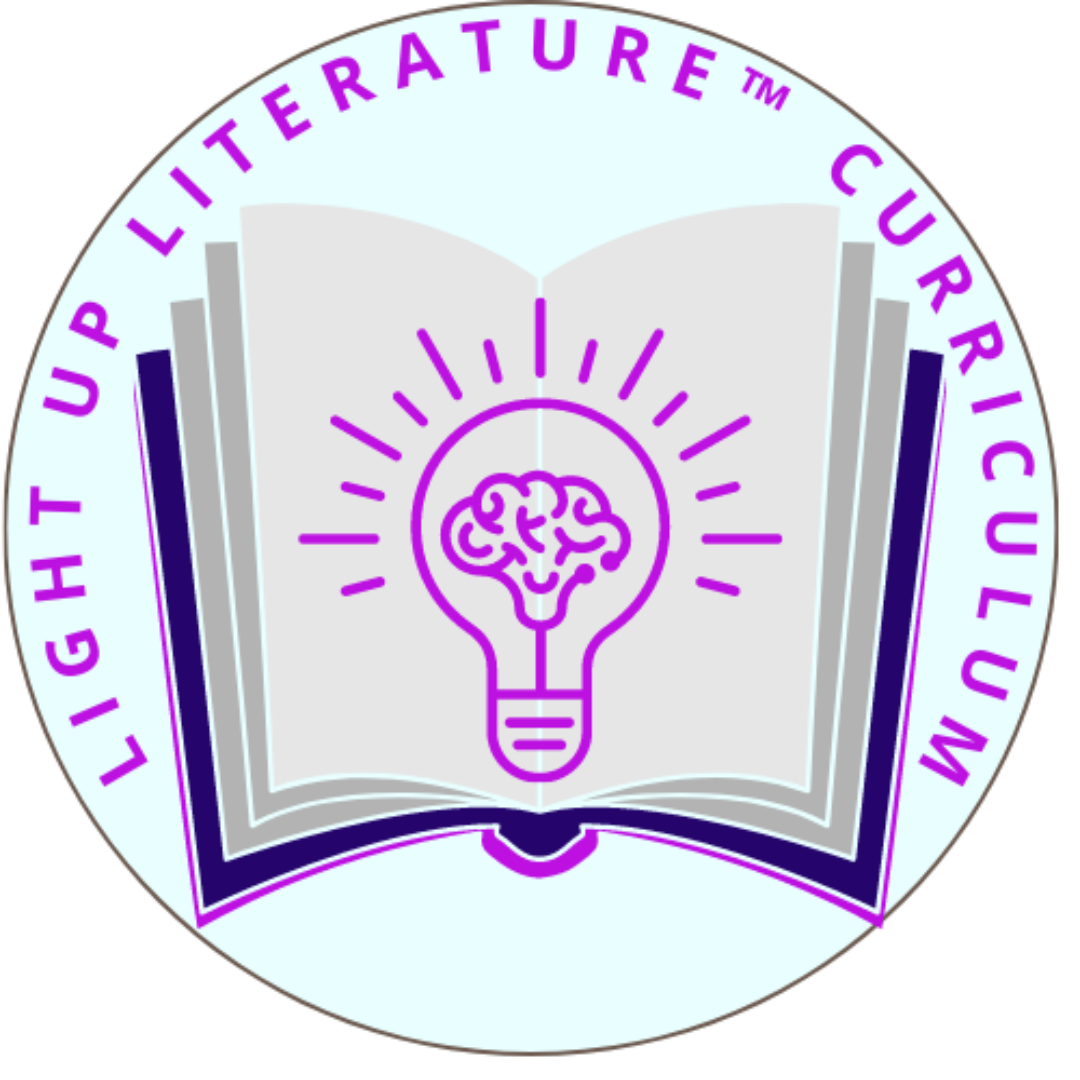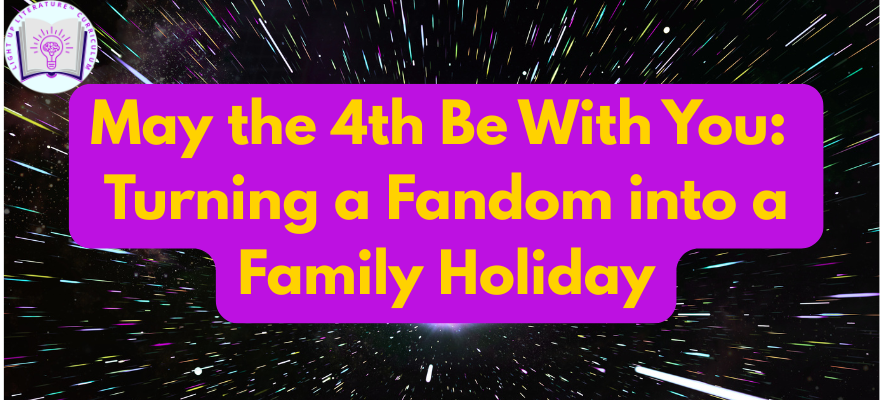Turning Struggles into Strengths: What I Learned Speaking to Alabama Parents About the ADHD Advantage in Middle School

Turning Struggles into Strengths: What I Learned Speaking to Alabama Parents About the ADHD Advantage in Middle School
Turning Struggles into Strengths: What I Learned Speaking to Alabama Parents About the ADHD Advantage in Middle School
This past weekend, I did something I’d never done before.
I spoke publicly at the 2025 Alabama Learning Conference held in Huntsville, Alabama, at the Von Braun Civic Center—not just as a booth vendor, but as a speaker representing Light Up Literature™ Curriculum. I stood in front of homeschool families from the communities I grew up in and shared the heart of what I believe: that ADHD isn’t a deficit. It’s a different way of thinking. And when we support it well, it becomes an advantage.
Was it perfect? No.
I couldn’t see my speaker notes. My slides weren’t as polished as I wanted. Only about 10–12 people were in the room. But those 10–12 people stayed. They took photos of the slides. They asked hard questions. And when someone raised their hand and asked how to help with emotional dysregulation, I didn’t give them a rehearsed answer. I gave them the truth.
"Let them feel it. Let them be angry. Let them be upset. But teach them that emotions don’t excuse behavior. Give them a time limit. Give them a boundary and a path forward."
It was raw, honest, and real. And it was received.
Here’s a snapshot from my booth—just me, my teaching guides, and a mission that feels more like a calling:
Watch this moment from the event: ADHD Advantage YouTube Short
The Talk: What I Shared
The talk was titled The ADHD Advantage in Middle School Homeschooling: Turning Struggles into Strengths. And it walked parents through something I know deeply because I’ve lived it as a student, a parent, a teacher, and a homeschool educator.
I shared:
How hyper-focus and creativity aren’t weaknesses—they’re hidden superpowers.
Why routine without rigidity helps ADHD kids thrive.
The power of offering choice within structure.
Why kids need support without shame and love without conditions.
The Scary—but Real—Statistics About ADHD
I don’t believe in using fear as motivation, but we have to be honest about the reality many ADHD kids face if their needs aren’t understood or supported early:
🛑 32% of students with ADHD drop out of high school (vs. 15% of neurotypical peers) — (Barkley, 2015)
🧠 They are 2–3x more likely to develop substance use disorders — (Molina et al., 2009)
⚖️ 25–30% of the prison population is estimated to have ADHD — (Journal of Correctional Health Care, 2014)
💔 Girls with ADHD are 3–4x more likely to experience trauma or abuse — (Hinshaw, 2006)
🚨 Only about 6% of adults with ADHD are formally diagnosed, meaning many struggle without support — (CHADD & CDC data)
🧍♀️ Girls are often diagnosed an average of four years later than boys, if at all — largely due to differences in symptom presentation and societal expectations
But these outcomes are not a guarantee. They are the result of a mismatch between how ADHD brains work—and how we expect them to behave.
And that mismatch can be fixed.
But That’s Not Destiny: ADHD Can Be an Advantage
When we reframe the way we teach, parent, and support kids with ADHD, we don’t just reduce risk—we uncover brilliance.
💼 Adults with ADHD are 6x more likely to start their own business — (Wiklund et al., 2018)
🎨 ADHD students score higher on creativity and divergent thinking tasks — (White & Shah, 2011)
🧩 Early intervention improves graduation rates and reduces behavioral risk by up to 50% — (DuPaul, 2011)
🌿 Just 20 minutes in nature improves focus, memory, and behavior in ADHD students — (Kuo & Taylor, 2004)
How to Use Movement, Hyperfocus, and Choice as a Path—Not a Problem
Here’s what we know from both research and real-life classroom success:
✅ Hyperfocus isn’t a lack of attention—it’s laser attention on things that matter to the student. When harnessed correctly, it becomes a strength for:
Deep dives into personal interest projects
Creative writing or design
Problem-solving in science, math, and real-world skills
✅ Movement isn’t a distraction—it’s regulation. Build it into learning by:
Letting them walk while brainstorming
Doing vocabulary jumping jacks or sentence scavenger hunts
Switching between seated and standing activities
✅ Choice within structure gives control without chaos. Say things like:
“Do you want to do reading or science first?”
“You can write this or record a short video answer.”
These strategies don’t lower expectations. They unlock access.
The Personal Side
This was also personal. It was my first talk in Alabama.
My husband came with me, supported me through every moment, and really saw what I do in a new light. He saw people stop to ask questions. He saw parents take pictures of my slides and tell me, “You made me feel hopeful again.”
And I made some truly wonderful connections—with homeschool moms, advocates, and fellow believers who care deeply about helping kids not just cope with ADHD but thrive.
There was so much encouragement. And it reminded me why I do this: because middle schoolers with ADHD deserve to be heard, helped, and held to high standards wrapped in grace.
What I Want Every Parent and Teacher to Know
Whether you teach in a public classroom or at your kitchen table—if you’re trying to help a middle schooler with ADHD (or even just a lot of big feelings), you’re not alone.
You don’t have to do it perfectly. You just have to do it with compassion, with structure, and with the understanding that this brain is wired for more.
If you want to learn how to support your middle schooler with practical, research-backed strategies, I’d love to send you my free Middle School ADHD Teaching Guide.
It’s honest. It’s usable. And it’s yours.
To the parents who sat in that room, thank you. To the families who paused to take photos of slides, asked questions, or stopped by my booth: I see you.
And to the ones who couldn’t be there but needed this message? I hope this blog post finds its way to your heart.
Because ADHD isn’t a weakness. It’s a superpower waiting to be understood.
And I’m here to help you unlock it.
~ Debra



